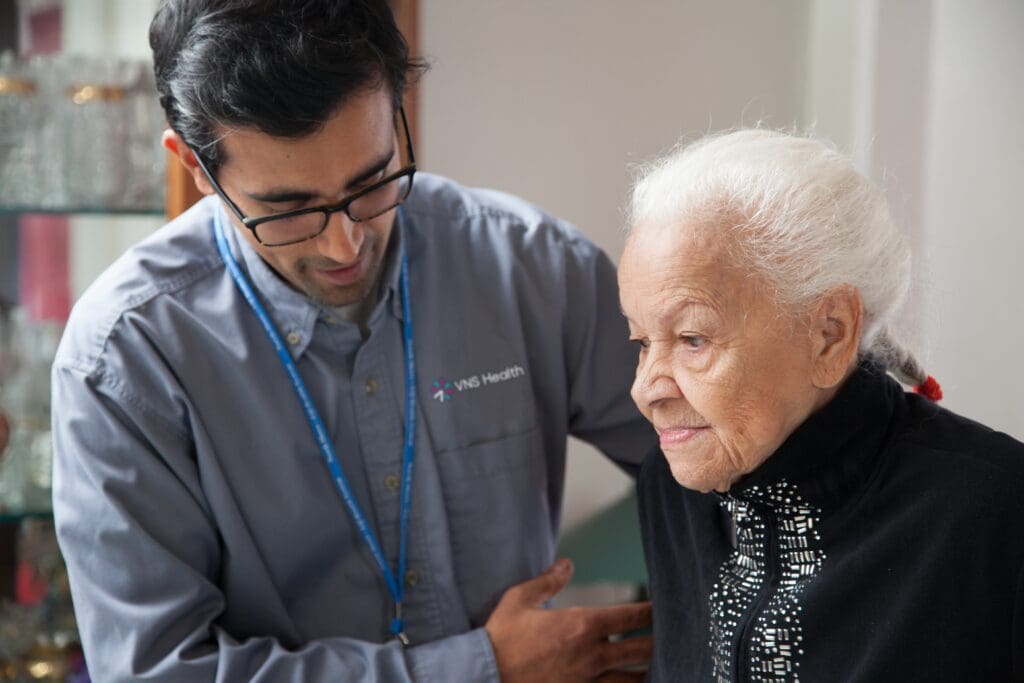Creating a Safe and Encouraging Environment for Mental Deterioration Care
Developing a safe and supportive environment for individuals with mental deterioration is a complex undertaking that dramatically impacts their high quality of life. The ins and outs of these strategies increase important questions concerning best methods and innovative strategies in mental deterioration care.
Recognizing Dementia and Its Challenges
Mental deterioration is a complex and dynamic neurological condition that dramatically affects cognitive feature, memory, and daily living tasks. This wear and tear in brain health and wellness often leads to a range of obstacles, including problems in communication, impaired judgment, and modifications in behavior. Individuals with dementia might experience confusion and disorientation, making it challenging to browse familiar atmospheres. These cognitive impairments can lead to disappointment and anxiety, not just for the affected individuals yet also for their caretakers and family participants.
Additionally, mental deterioration incorporates different kinds, such as Alzheimer's disease, vascular mental deterioration, and frontotemporal dementia, each offering distinct signs and symptoms and progression rates. As the problem advancements, people may deal with standard jobs, consisting of dressing, eating, and personal health, necessitating boosted assistance from caretakers.
Understanding the multifaceted nature of dementia is vital for establishing effective care approaches. Caregivers should be equipped with expertise about the disease's progression and the specific requirements of the person. This understanding promotes an empathetic approach to care, enabling caregivers to create a much more supportive atmosphere that values the self-respect and uniqueness of those coping with dementia.
Creating a Safe Living Space
A risk-free living area is important for people with mental deterioration, as it can considerably improve their high quality of life and promote freedom. The layout of such an environment must focus on security, convenience, and ease of access.
Including acquainted and personal things can develop a sense of belonging and decrease stress and anxiety. Color-coded signs and basic designs can assist in navigation, aiding people orient themselves within their home - memory care charlotte. It is important to decrease clutter, which can bring about complication and agitation
Additionally, safe outdoor rooms are valuable. Encased gardens enable people to take pleasure in fresh air while ensuring their safety and security. Using security system or monitoring gadgets can provide satisfaction for caregivers, allowing them to react immediately to any type of emergency situations.
Promoting Positive Communication
Reliable interaction is important for promoting and supporting partnerships wellness for individuals with mental deterioration. To facilitate positive communication, caretakers have to adapt their technique to meet the one-of-a-kind requirements of each individual.
Non-verbal interaction also plays a considerable function; caretakers must bear in mind body movement, face expressions, and eye get in touch with, as these can share warmth and empathy. Listening actively is similarly essential, providing chances for people see it here to reveal themselves, also if their words might be limited or unclear. Caretakers need to remain person and enable enough time for responses, thus lowering stress and encouraging engagement in discussions.
In addition, acquainting individuals with their atmosphere and including individual background can improve interaction and recollection, making interactions much more significant. By fostering an encouraging environment that focuses on favorable interaction, caregivers can substantially boost the psychological and mental health of individuals with mental deterioration, inevitably causing a much more improving treatment experience for both parties entailed.
Encouraging Purposeful Tasks
Involving individuals with mental deterioration in meaningful tasks can considerably enhance their high quality of life and advertise cognitive feature. charlotte care home. Purposeful tasks are those that reverberate with the individual's abilities, preferences, and rate of interests, consequently fostering a sense of function and success. These activities can vary from arts and crafts to gardening, songs therapy, or perhaps basic family jobs that encourage engagement and engagement
Implementing purposeful activities calls for a personalized technique. Caretakers and household participants need to take the time to recognize the person's background, leisure activities, and staminas.
Moreover, it is necessary to develop an atmosphere that urges involvement and minimizes stress. Flexible tools and an encouraging ambience can aid people engage conveniently and effectively. Inevitably, promoting purposeful activities is vital in dementia treatment, as it promotes self-respect, enhances emotional health, and adds to a far better overall experience for those impacted by the problem.
Structure a Support Network
Producing a robust support network is important for people with dementia, as it supplies essential sources and emotional backing for both the patients and their caretakers. A support network can include member of the family, buddies, healthcare experts, and area organizations, every one of whom play an essential duty in boosting the top quality of care and life for those impacted by mental deterioration.

Neighborhood companies, such as Alzheimer's organizations, charlotte care home offer programs that can help construct a network of support. These programs not just give education regarding dementia yet also foster social links among caretakers and individuals, lowering feelings of isolation. Overall, a reputable assistance network is necessary for ensuring that people with mental deterioration receive thorough care, advertising dignity, respect, and a much better top quality of life.
Verdict
Finally, developing a supportive and risk-free environment for people with dementia is vital for boosting their lifestyle. Thoughtful design that focuses on safety and security, efficient interaction approaches, and chances for meaningful involvement jointly add to boosted wellness. In addition, a durable assistance network entailing household, caretakers, and healthcare specialists is important in dealing with the psychological and sensible needs of those influenced by mental deterioration. Executing these aspects fosters a nurturing atmosphere that promotes dignity and respect for individuals facing this condition.

In final thought, creating a secure and encouraging atmosphere for individuals with dementia is crucial for boosting their high quality of life.